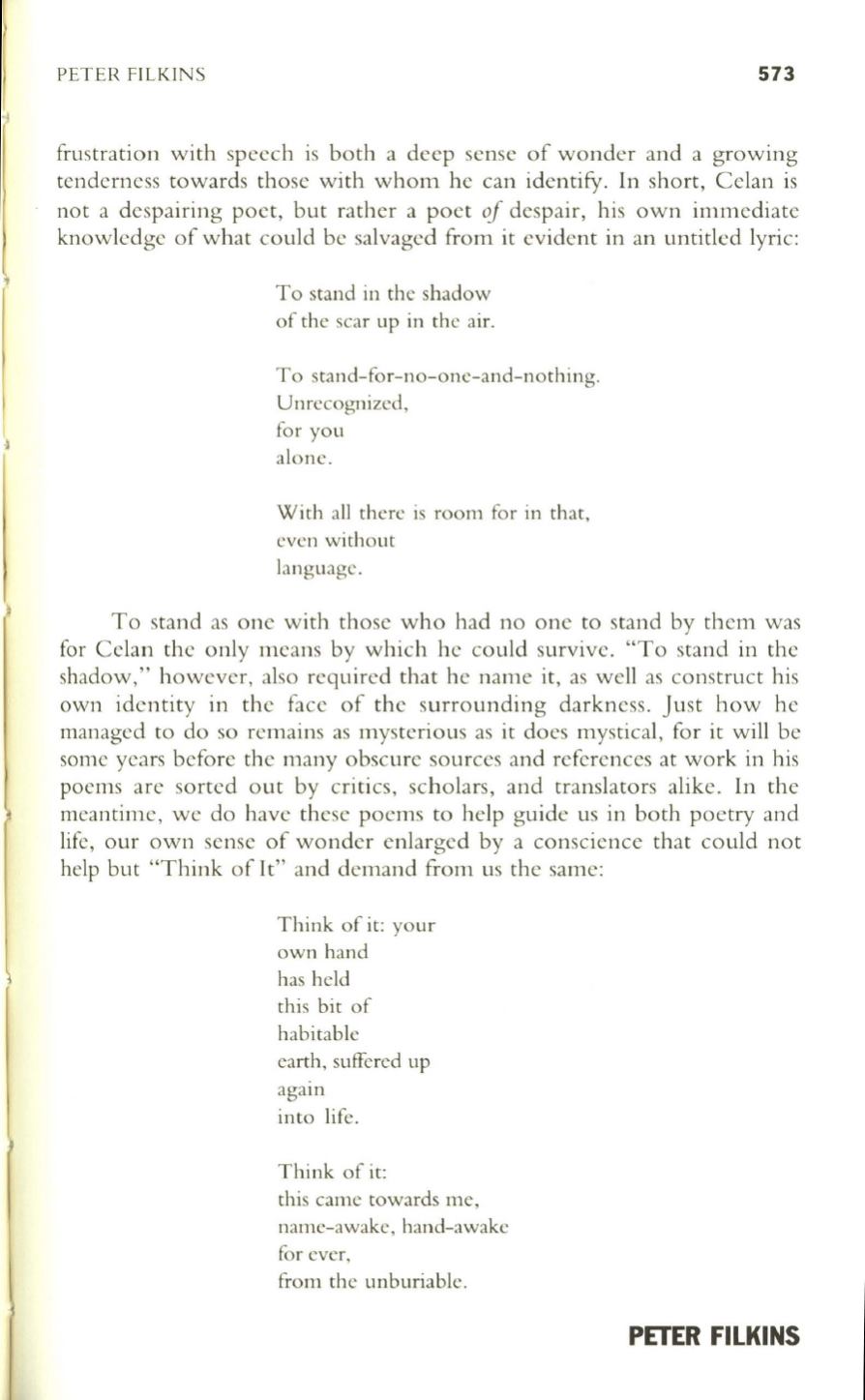
PETER FILKINS
573
frustration with speech is both a deep sense of wonder and a growing
tenderness towards those with whom he can identifY.
In
short, Celan is
not a despairing poet, but rather a poet
oj
despair, his own immediate
knowledge of what could be salvaged from it evident in an untitled lyric:
To
stand in the shadow
of the scar up in the air.
To stand-for-no-one-and-nothing.
Unrecognized,
for you
alone .
With all there is room for in that,
even without
language.
To stand as one with those who had no one to stand by them was
for Celan the only means by which he could survive. "To stand in the
shadow," however, also required that he name it, as well as construct his
own identity in the face of the surrounding darkness. Just how he
managed to do so remains as mysterious as it does mystical, for it will be
some years before the many obscure sources and references at work in his
poems are sorted out by critics, scholars, and translators alike.
In
the
meantime, we do have these poems to help guide us in both poetry and
life, our own sense of wonder enlarged by a conscience that could not
help but "Think of It" and demand from us the same:
Think of it: your
own hand
has
held
this bit of
habitable
earth, suffered up
again
into life.
Think of it:
this came towards me,
name-awake, hand-awake
for ever,
from the unburiable.
PETER FILKINS


